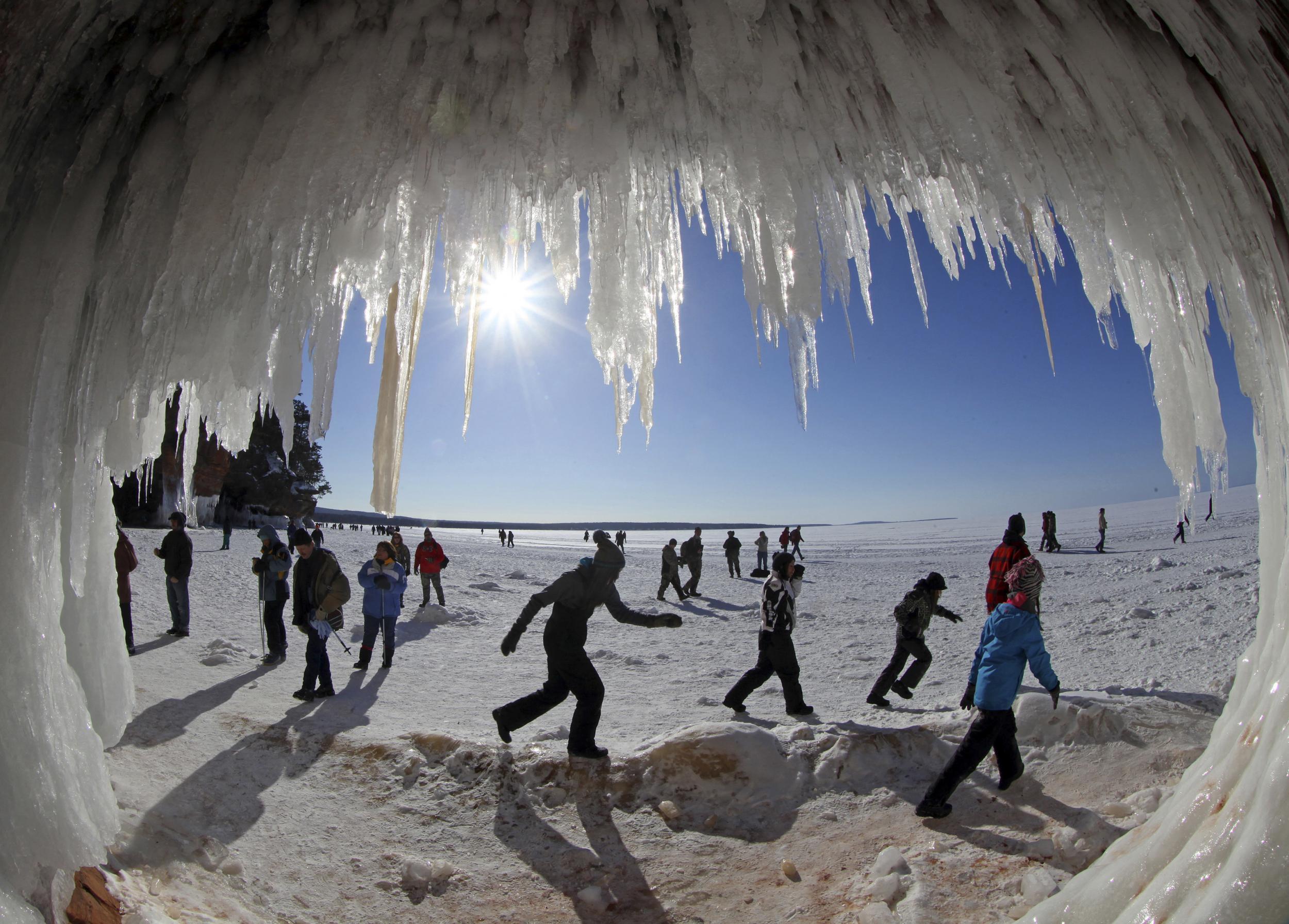Officials in US replace science with climate change denial days after Donald Trump's election victory
Wisconsin state website downplays climate change as a subject under debate while the planet is merely experiencing change ‘as it has done throughout the centuries’

Officials in Wisconsin removed information about climate change on a state government website and replaced it with unfounded claims that the science behind global warming is still a matter of “debate” within days of Donald Trump’s US election victory, it has emerged.
The Earth’s atmosphere has already warmed by nearly one degree Celsius in little over a century and the basic science demonstrating that carbon dioxide emissions have driven this process and will continue to do so is undeniable.
The head of the American Association for the Advancement of Science recently suggested disputing the reality of climate change was as ludicrous as denying the existence of gravity. In June, 31 scientific bodies wrote to Congress with the central message that climate change is real.
However, America’s President-elect has dismissed the science as a “hoax” and climate change denial is alarmingly common among rightwing American politicians.
In the new guidance, the Wisconsin Department of Natural Resources (DNR) does not actually mention climate change – although it does appear in the URL of its webpage.
Headlined “The Great Lakes and a changing world”, it reads: “As it has done throughout the centuries, the Earth is going through a change.
“The reasons for this change at this particular time in the Earth’s long history are being debated and researched by academic entities outside the Wisconsin Department of Natural Resources.
“The effects of such a change are also being debated but whatever the causes and effects, the DNR’s responsibility is to manage our state’s natural resources through whatever event presents itself; flood, drought, tornadoes, ice/snow or severe heat.”
This is a standard line used by climate science deniers and sceptics.
Previously the same page, headlined “Climate Change and Wisconsin’s Great Lakes”, echoed the scientific consensus and stated a number of simple, verifiable facts.
“Earth’s climate is changing. Human activities that increase heat-trapping (‘greenhouse’) gases are the main cause,” it said.
“Earth’s average temperature has increased 1.4 °F [0.4C] since 1850 and the eight warmest years on record have occurred since 1998.
“Increasing temperatures have led to changes in rainfall patterns and snow and ice cover. These changes could have severe effects on the Great Lakes and the plants, wildlife and people who depend on them.
“While no one can predict exactly what climate change will mean for our Great Lakes, scientists agree that the following changes are likely if climate change patterns continue.”
The page also used to state that increased temperatures would result in greater evaporation and lower levels of warmer lake water.
This would reduce the habitat for cold-water species and result in a loss of “critical wetland areas”.
And the lower water levels “could have severe economic consequences for our valuable shipping industry, lakeshore recreation, and coastal businesses”,” the webpage had warned.
However, it added: “The good news is that we can all work to slow climate change and lessen its effects.”

A spokesman for the DNR told the Milwaukee-Wisconsin Journal Sentinel: “The updated page reflects our position on this topic that we have communicated for years, that our agency regularly must respond to a variety of environmental and human stressors from drought, flooding, wind events to changing demographics.
“Our agency must be ready to respond to each of these challenges. Adaptation has been our position on this topic.
“As you know the causes and effects of any changes in climate are still being debated and research on the matter is being done in academic circles outside DNR.”
Join our commenting forum
Join thought-provoking conversations, follow other Independent readers and see their replies
Comments
Bookmark popover
Removed from bookmarks